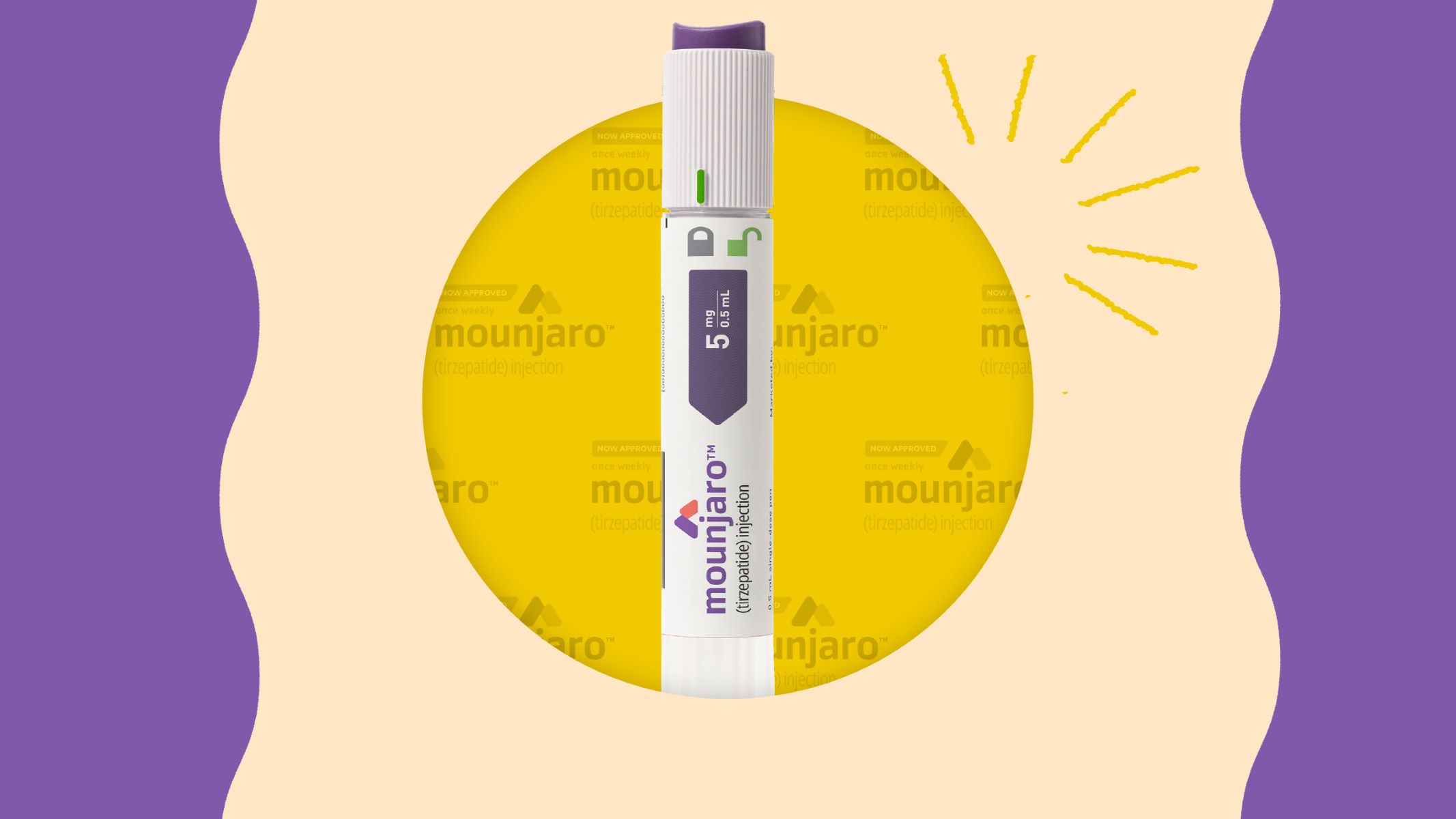Home>Finance>How Much Does Medi Weight Loss Cost With Insurance?


Finance
How Much Does Medi Weight Loss Cost With Insurance?
Published: November 18, 2023
Discover the cost of Medi Weight Loss with insurance. Find out how this program can fit into your budget and finance goals.
(Many of the links in this article redirect to a specific reviewed product. Your purchase of these products through affiliate links helps to generate commission for LiveWell, at no extra cost. Learn more)
Table of Contents
Introduction
Welcome to the world of Medi Weight Loss! If you’re looking to shed those extra pounds and achieve a healthier lifestyle, you’re in the right place. Medi Weight Loss is a comprehensive weight loss program that combines medical supervision, nutrition counseling, and behavioral education to help individuals reach their weight loss goals.
Weight loss programs can be a significant investment, and it’s essential to understand the financial aspects, especially when it comes to insurance coverage. In this article, we’ll explore how much Medi Weight Loss costs with insurance and what factors can affect the overall expenses.
Before we delve into the specifics of insurance coverage, let’s take a closer look at what exactly Medi Weight Loss entails. This personalized program focuses on individual needs and goals, offering a range of services that go beyond basic dietary advice. It takes a multidisciplinary approach, combining medical expertise, counseling, and education to address the root causes of weight gain and develop sustainable habits for long-term success.
At Medi Weight Loss, you receive personalized attention from healthcare professionals who guide you through each step of your weight loss journey. They create a tailored plan that takes into account your current health condition, dietary preferences, and lifestyle to ensure the best possible outcome.
Now that we have a better understanding of Medi Weight Loss, let’s explore the potential coverage options available for this program through insurance policies. Keep in mind that insurance providers often have different policies and criteria for covering weight loss programs. It’s crucial to review your specific plan terms and consult with your insurance provider to determine the coverage available for Medi Weight Loss.
Understanding Medi Weight Loss
Medi Weight Loss is a comprehensive weight loss program that takes a personalized approach to help individuals achieve their weight loss goals. Unlike fad diets or quick fixes, this program is designed to provide long-lasting results by addressing the underlying factors contributing to weight gain.
The program begins with an initial consultation, where health professionals evaluate your medical history, current health condition, and weight loss goals. This assessment helps them develop a customized plan that takes into account your unique needs and preferences.
Medi Weight Loss combines medical supervision, nutrition counseling, and behavioral education to provide a holistic approach to weight loss. These components work together to ensure that you not only shed pounds but also develop healthy habits and maintain your progress in the long run.
One of the key features of Medi Weight Loss is the use of meal replacements. These specially formulated shakes, bars, and snacks are designed to provide essential nutrients while keeping calories in check. By incorporating meal replacements into your plan, you can simplify your dietary choices and ensure that you’re getting the necessary nutrients to support your weight loss journey.
In addition to meal replacements, the program emphasizes whole, unprocessed foods and encourages portion control. You’ll receive guidance from nutrition professionals who will help you make informed choices and provide ongoing support to ensure that you stay on track.
Behavioral education is another crucial component of Medi Weight Loss. This aspect of the program addresses the psychological and emotional factors that contribute to weight gain and helps individuals develop healthier relationships with food. Through counseling and support, you’ll learn strategies to manage stress, emotional eating, and other behaviors that may hinder your progress.
Overall, Medi Weight Loss offers a comprehensive approach to weight loss that focuses on individual needs and provides ongoing support and guidance throughout the process. By addressing the underlying factors contributing to weight gain and providing tools for long-term success, this program aims to help individuals achieve and maintain a healthier lifestyle.
Coverage for Weight Loss Programs
When it comes to insurance coverage for weight loss programs like Medi Weight Loss, it’s important to understand that not all insurance plans provide coverage. Historically, insurance coverage for weight loss programs has been limited, as some insurers considered weight loss to be a cosmetic concern rather than a medical necessity.
However, the recognition of obesity as a significant health issue has led to a shift in insurance coverage policies. Many insurance companies now acknowledge the importance of weight loss programs as a means to improve overall health and reduce the risk of obesity-related illnesses.
While some insurance plans may offer limited coverage for weight loss programs, others may require certain criteria to be met before coverage is provided. These criteria may include a minimum body mass index (BMI), documented attempts at other weight loss methods, or the presence of obesity-related health conditions.
It’s important to review your specific insurance policy to determine if weight loss programs are covered and under what circumstances. Some insurance plans may cover a portion or all of the costs associated with medically supervised weight loss programs, such as Medi Weight Loss. However, it’s essential to note that the extent of coverage, reimbursement rates, and specific program requirements can vary significantly between insurance providers.
If your insurance plan does not offer coverage for weight loss programs or if you don’t meet the necessary criteria, there are other options available. Some employers offer wellness programs that include weight loss support. Additionally, you may consider utilizing flexible spending accounts (FSAs) or health savings accounts (HSAs) to cover the expenses of a weight loss program.
When exploring insurance coverage options, it’s important to communicate directly with your insurance provider to understand the specific terms, requirements, and limitations of your plan. They can provide you with the most accurate information regarding coverage for weight loss programs like Medi Weight Loss.
Insurance Options for Medi Weight Loss
If you’re considering Medi Weight Loss as a part of your weight loss journey, it’s essential to explore your insurance options. While not all insurance plans provide coverage for weight loss programs, some may offer partial or full coverage, depending on the specific terms of your policy.
Start by reviewing your insurance policy or contacting your insurance provider directly. Inquire about the coverage for weight loss programs, particularly medically supervised programs like Medi Weight Loss. Ask about any requirements or criteria that need to be met for coverage, such as minimum body mass index (BMI) or documented attempts at other weight loss methods.
If your insurance plan offers coverage, be sure to ask about the extent of coverage, including the number of visits or sessions covered, any required copayments, and any limitations regarding program duration or services.
It’s important to note that insurance coverage for weight loss programs can vary greatly, even among plans offered by the same provider. Some insurance plans may cover all expenses associated with the program, while others may cover only a portion of the costs. There may also be limitations on the frequency of visits or the duration of the program.
If your insurance plan does not provide coverage or if you don’t meet the necessary criteria, there are still options available. Some insurance providers offer voluntary wellness programs that may include weight loss support. These programs may require an additional fee, but they can provide valuable resources and guidance.
Another option to consider is utilizing a flexible spending account (FSA) or health savings account (HSA). These accounts allow you to set aside pre-tax funds to be used for qualifying medical expenses. Depending on the specific terms of your FSA or HSA, you may be able to use these funds to cover the costs of a weight loss program like Medi Weight Loss.
Ultimately, it’s important to explore all available insurance options and weigh the potential costs and benefits. Consider the coverage provided, any out-of-pocket expenses, and the potential long-term health benefits of participating in a medically supervised weight loss program like Medi Weight Loss.
Remember to consult with your insurance provider to get the most accurate and up-to-date information about coverage for weight loss programs. They can guide you through the process and help you understand the options available to you.
Cost of Medi Weight Loss with Insurance
The cost of Medi Weight Loss with insurance can vary depending on several factors, including your specific insurance plan, the coverage provided, and any out-of-pocket expenses. It’s important to review your insurance policy and consult with your insurance provider to understand the potential costs associated with the program.
Insurance coverage for weight loss programs like Medi Weight Loss can range from partial coverage to full coverage, depending on your specific plan. Some insurance plans may cover all of the program expenses, including initial consultations, medical supervision, nutrition counseling, and behavioral education sessions. Others may only cover a portion of the costs.
In addition to your insurance coverage, you may be responsible for certain out-of-pocket expenses, such as copayments or deductibles. These costs can vary depending on your insurance plan and the specific terms of your policy.
It’s also important to consider any potential additional costs associated with participating in Medi Weight Loss. These may include the cost of meal replacement products, supplements, or other program-specific items recommended as part of the weight loss plan.
While insurance coverage can help offset the cost of Medi Weight Loss, it’s important to budget for potential out-of-pocket expenses. Take the time to review your insurance policy, understand the coverage provided, and consider any potential additional costs. This will help you make an informed decision about whether the program is financially feasible for you.
Remember, the cost of Medi Weight Loss with insurance can vary significantly depending on your specific plan and the coverage provided. Be sure to consult with your insurance provider for the most accurate and up-to-date information regarding the cost of the program.
Factors Affecting Cost
There are several factors that can influence the cost of Medi Weight Loss, even with insurance coverage. Understanding these factors can help you better estimate and plan for the expenses associated with the program.
1. Insurance Coverage: The extent of insurance coverage for weight loss programs can vary greatly between insurance providers and individual plans. Some insurance plans may cover all or a portion of the costs, while others may provide limited coverage or none at all. Review your insurance policy to determine the coverage provided for Medi Weight Loss.
2. Out-of-Pocket Expenses: Even with insurance coverage, there may be out-of-pocket expenses associated with Medi Weight Loss. These can include copayments, deductibles, or any additional costs for program-specific items like meal replacement products or supplements. Be sure to consider these potential expenses when budgeting for the program.
3. Program Duration: The duration of the Medi Weight Loss program can affect the overall cost. Longer programs may require more visits or sessions, which can result in higher expenses. Discuss the recommended program duration with healthcare professionals and factor it into your cost estimation.
4. Program Components: The specific components included in your Medi Weight Loss program can also impact the cost. Programs may differ in terms of medical supervision, nutrition counseling, behavioral education, and other services offered. The more comprehensive the program, the higher the potential cost.
5. Location: The location of the Medi Weight Loss clinic or healthcare provider can influence the cost as well. In areas with a higher cost of living, the program fees may be higher. Consider the location of the program when estimating the overall cost.
It’s important to note that while cost is an important factor, the effectiveness and potential health benefits of the program should also be considered. Medi Weight Loss offers a comprehensive approach to weight loss with personalized support and medical supervision. Evaluate the potential benefits of the program alongside the associated costs to determine if it aligns with your goals and budget.
Potential Out-of-Pocket Expenses
While insurance coverage can help offset the cost of Medi Weight Loss, there are potential out-of-pocket expenses that you should consider when budgeting for the program. These expenses can vary based on your insurance plan, the specific terms of your policy, and any additional costs associated with participating in the program.
1. Copayments: Depending on your insurance plan, you may be required to pay a copayment for each visit or session of Medi Weight Loss. Copayments can vary and are typically due at the time of service. Be sure to review your insurance policy to understand the copayment amount and frequency.
2. Deductibles: If you have a high deductible health plan, you may need to meet your deductible before insurance coverage kicks in. This means that you would be responsible for paying the full cost of Medi Weight Loss until your deductible is met. Take note of your deductible amount and any applicable deductibles for the program.
3. Non-Covered Services: While Medi Weight Loss may be partially or fully covered by your insurance, there may be certain services or items that are not covered. This could include specific tests, supplements, or program-specific items that are considered outside the scope of coverage. These expenses would be out-of-pocket costs that you would need to pay separately.
4. Meal Replacements and Supplements: As part of the Medi Weight Loss program, you may be required to use meal replacement products or supplements. These items are typically not covered by insurance and would be an additional out-of-pocket expense. The cost of these products can vary depending on the brand and quantity required.
5. Miscellaneous Costs: There may be other miscellaneous costs associated with participating in Medi Weight Loss, such as program materials, educational resources, or additional services recommended by the healthcare professionals. These costs can vary and should be taken into account when estimating the overall out-of-pocket expenses.
It’s crucial to review your specific insurance policy and communicate directly with your insurance provider to understand the potential out-of-pocket expenses associated with Medi Weight Loss. By doing so, you can ensure that you have a comprehensive understanding of the financial commitment required and make informed decisions regarding your weight loss journey.
Tips for Maximizing Insurance Coverage
If you want to maximize your insurance coverage for programs like Medi Weight Loss, there are several tips you can follow to ensure you make the most of your benefits. By being proactive and informed, you can potentially reduce your out-of-pocket expenses and take full advantage of the coverage provided by your insurance plan.
1. Review Your Policy: Begin by thoroughly reviewing your insurance policy to understand the coverage available for weight loss programs. Look for any specific language that mentions coverage for medically supervised weight loss programs or any requirements that need to be met for coverage. Understanding your policy’s terms and limitations is essential in maximizing your benefits.
2. Inquire About Necessary Criteria: Speak with your insurance provider to determine if there are any criteria you need to meet for coverage. This may include having a certain body mass index (BMI), demonstrating attempts at other weight loss methods, or having obesity-related health conditions. Understanding these criteria can help you determine your eligibility for coverage.
3. Utilize Preventive Care Benefits: Some insurance plans offer preventive care benefits that cover weight management and counseling services. These services may include nutrition counseling or behavioral therapy, which are integral components of weight loss programs like Medi Weight Loss. Inquire about these benefits and determine if they can be utilized to help cover the costs of the program.
4. Obtain a Referral if Required: Some insurance plans may require a referral from a primary care physician to access coverage for weight loss programs. Check with your insurance provider to determine if a referral is necessary and obtain one if needed, as failure to do so may result in a denial of coverage.
5. Keep Documentation: Document and keep records of your weight loss journey, including any medical evaluations, progress reports, or counseling sessions. These records can be used to support your claim for insurance coverage and demonstrate the medical necessity of the program.
6. Appeal Denied Claims: If your insurance provider denies coverage for Medi Weight Loss, you have the right to appeal the decision. Gather supporting documentation and communicate with your healthcare provider to strengthen your case. Insurance companies often have an appeals process that allows you to present your case for reconsideration.
7. Understand Alternative Financing Options: If your insurance plan does not offer coverage for weight loss programs, explore alternative financing options. Some clinics or providers may offer payment plans or financing options to help make the program more affordable. Additionally, consider utilizing flexible spending accounts (FSAs) or health savings accounts (HSAs) to cover the expenses related to the program.
In summary, understanding your insurance coverage, meeting necessary criteria, utilizing preventive care benefits, and appealing denied claims are essential steps in maximizing your insurance coverage for weight loss programs like Medi Weight Loss. By being proactive and advocating for yourself, you can take full advantage of the benefits provided by your insurance plan.
Conclusion
Considering the cost of weight loss programs like Medi Weight Loss with insurance coverage is an important step in your weight loss journey. While insurance coverage for such programs may vary, it’s crucial to review your policy, understand the coverage provided, and explore your options.
Medi Weight Loss offers a comprehensive approach to weight loss, combining medical supervision, nutrition counseling, and behavioral education. This personalized program can help individuals achieve their weight loss goals and develop healthy habits for long-term success.
Insurance coverage for weight loss programs has evolved over time, with many insurance providers recognizing the health benefits of medically supervised weight loss programs. However, coverage can still vary significantly between insurance plans and individual policies.
Taking into consideration potential out-of-pocket expenses, such as copayments, deductibles, and program-specific items, will help you budget and make informed decisions about participating in Medi Weight Loss.
Maximizing insurance coverage for weight loss programs involves understanding your policy, meeting any criteria or requirements, and exploring alternative financing options if needed. By being proactive and knowledgeable about your insurance coverage, you can make the most of the benefits provided by your plan.
Remember to review your insurance policy, communicate with your insurance provider, and consult with healthcare professionals to determine the best course of action for your weight loss journey.
Ultimately, while the cost of Medi Weight Loss with insurance is a factor to consider, the potential benefits of achieving a healthier lifestyle and reaching your weight loss goals may far outweigh the financial investment. Dedicate time and effort to explore your insurance options, make informed decisions, and embark on a weight loss journey that aligns with your goals and financial capabilities.














